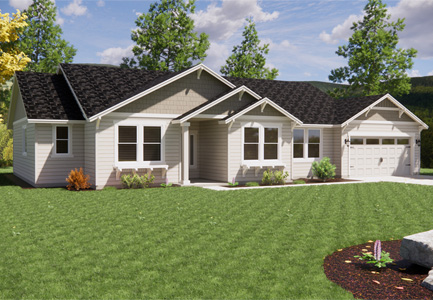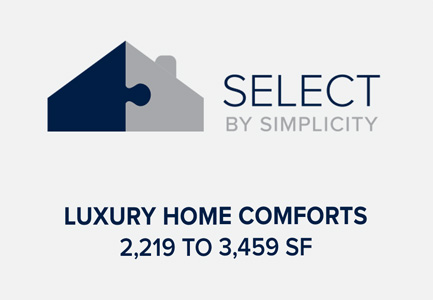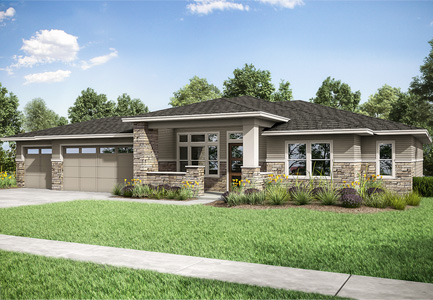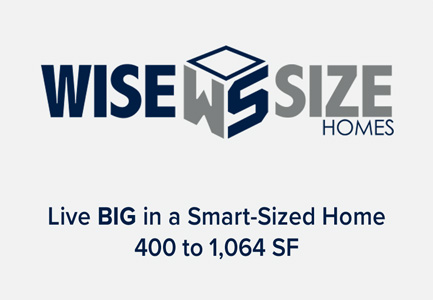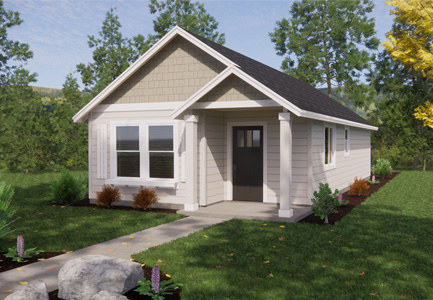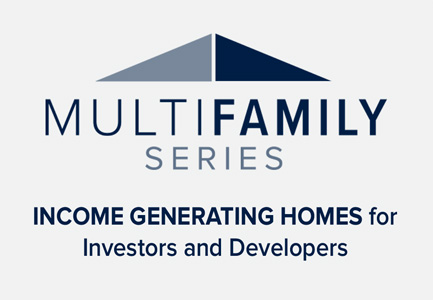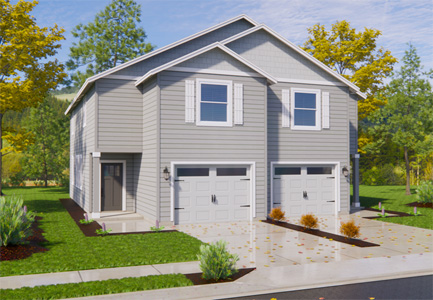
Deciding to buy your first home is a huge milestone. The next question is just as important: should you purchase an existing house or build your first home from the ground up? While the idea of new construction can seem complex, it is a surprisingly practical and rewarding path to getting exactly what you want.
This guide provides a straightforward look at the process. We will cover the pros and cons, costs, timelines, and key decisions to help you determine if building a new home is the right choice for you.
Why Build Instead of Buy?
Building a home offers distinct advantages over buying resale, but it’s important to weigh both sides.
The Benefits of a New Build
- Complete Customization: You select the floor plan, finishes, and features that fit your life. Your home reflects your style from day one, not someone else’s.
- Modern Energy Efficiency: New homes are built to current energy codes. This means better insulation and high-performance systems, leading to lower utility bills and a more comfortable home.
- New Home Warranties: A builder’s warranty provides peace of mind. You are protected against major issues, a security you don’t get with an older home.
- Low Initial Maintenance: With everything brand new, from the roof to the appliances, you can spend your time enjoying your home, not repairing it.
- Potential Insurance Savings: Many insurers offer lower rates for new construction because the new electrical, plumbing, and structural components pose a lower risk.
The Realities to Consider
- Longer Timelines: A new build is a marathon, not a sprint. The entire process takes significantly longer than the 30-60 day closing on an existing home.
- Decision Fatigue: Choosing every detail of your home is exciting, but the sheer volume of choices can become overwhelming for some.
- Complex Financing: You will likely need a construction loan, which involves more steps and paperwork than a standard mortgage.
- Potential for Cost Overruns: Issues with the land or changing your mind on selections can lead to unexpected costs. Careful planning is essential.
Cost & Financing Basics
The budget for a new build includes more than just the house itself. Here’s what to plan for:
- Key Cost Components: Your total budget will be a mix of material costs (lumber, fixtures), labor, and soft costs like permit fees and site work (excavation, utility connections).
- The Contingency Buffer: It is wise to set aside an extra 5-10% of your total project cost. This contingency fund acts as a safety net for unforeseen expenses, ensuring they don’t derail your budget.
- Construction-to-Permanent Loans: This is the most common financing tool for a new build. It combines the construction loan and your mortgage into a single product with one closing. During the build, the lender pays the builder in stages, and you typically only pay interest on the funds used. Once the home is complete, the loan converts into a traditional mortgage.
Timeline: What to Expect
Patience is crucial when you build your first home. A typical new home construction project takes between 6 and 11 months, a sharp contrast to the 30-60 day timeline for buying an existing home. The process breaks down into three main phases:
- Pre-Construction (1–3 Months): This is the planning stage where you finalize your home plan, make your design selections, secure financing, and your builder obtains permits.
- Construction (4–7 Months): The physical build happens here. It moves from foundation and framing to installing systems like plumbing and electrical, followed by drywall, paint, flooring, and cabinets.
- Closing (1 Month): This final phase involves official inspections, a final walkthrough with your builder, and signing the paperwork to take ownership of your new home.
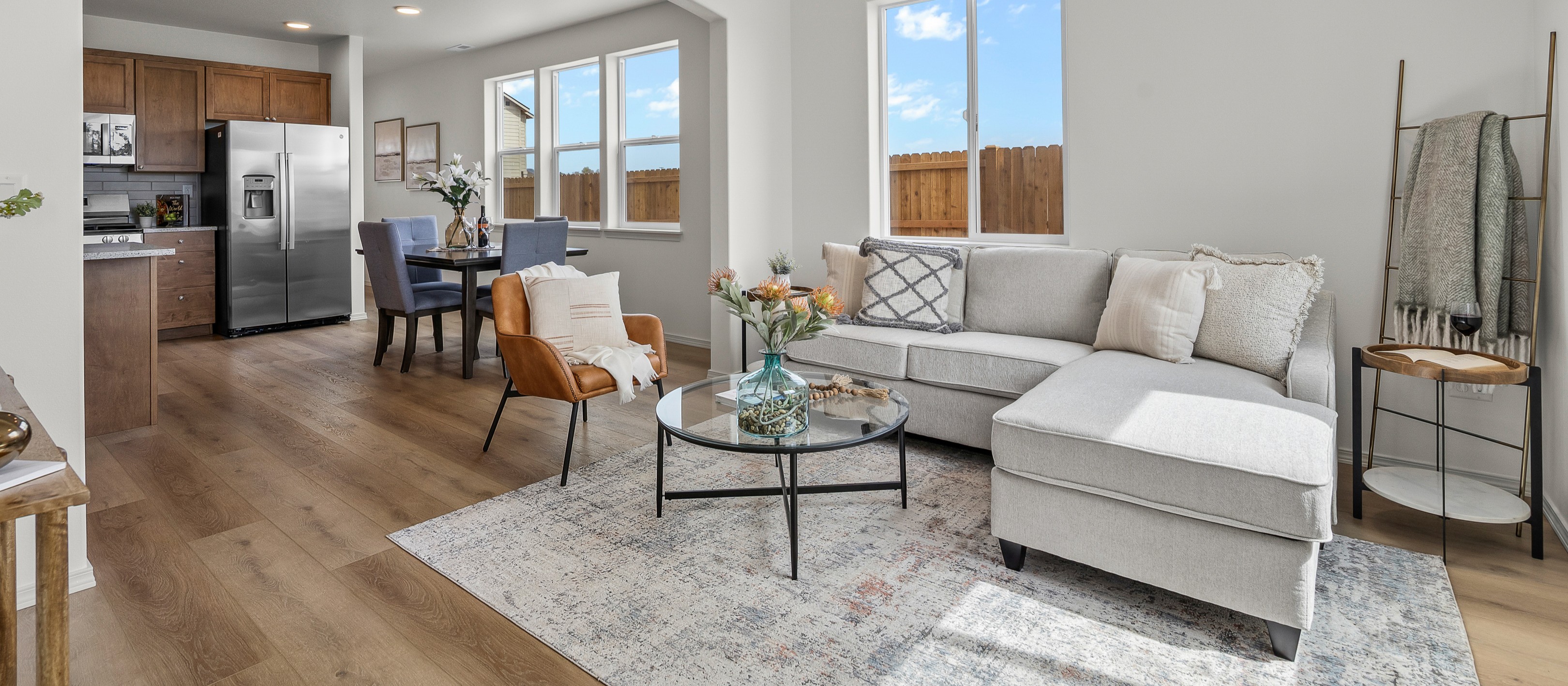
A Simple Decision Framework
Use this framework to analyze your personal situation and gain clarity.
1. Budget: Can your finances support a build?
- Threshold: You have stable income, good credit, and can budget for a 5-10% contingency fund.
- Example: For a $450,000 build, this means having access to an extra $22,500-$45,000 as a buffer.
- Verdict: If your budget is rigid with no flexibility, buying existing may be better. If you can plan for a buffer, building is a great option.
2. Timing: Can your living situation accommodate the schedule?
- Threshold: You have a flexible living arrangement that works for a 6 to 11-month build time.
- Example: You have a month-to-month lease, but if your lease ends in 60 days with no option to extend, a build is likely not feasible.
- Verdict: If you need to move in less than three months, focus on the resale market. If your timeline is flexible, a build works.
3. Control: How important is personalization to you?
- Threshold: You have a clear vision and want to choose the layout and finishes that match your needs perfectly.
- Example: You are tired of less-than-ideal layouts in older homes and want the assurance of all-new systems.
- Verdict: If you prefer a turnkey home without making design choices, buy existing. If the idea of a fully customized home excites you, building is the right path.
Tips to Stay on Budget & Schedule
A successful build is a well-managed one. Use these tips to stay in control:
- Lock In Your Selections: Finalize all your decisions on finishes, fixtures, and colors before construction starts.
- Practice Scope Discipline: The primary cause of budget and schedule overruns is making changes after work has begun. Stick to your plan.
- Perform Homesite Due Diligence: Understand the land you are building on. Our team can help evaluate a homesite for utility access and preparation needs.
- Be Aware of Permitting: Your builder handles the permitting process, but know that it can take weeks or months depending on the municipality, so it’s important to factor this into your timeline.
How Simplicity by Hayden Homes Helps
We make the process of building your first home straightforward and manageable.
- Curated Home Plans: We offer a portfolio of proven, well-designed floor plans, saving you the time and expense of hiring an architect.
- Streamlined Option Packages: Our curated design packages ensure your home’s finishes are cohesive and beautiful without overwhelming you with choices.
- Expert Guidance: Your dedicated New Home Advisor is your partner from start to finish. They provide clarity and support through homesite evaluation, financing, and every step of the build.
When to Build vs. When to Buy
So what is the final verdict? It all comes down to your priorities.
Building your first home is the right choice if:
- You prioritize personalization and want a home tailored to your lifestyle.
- You value long-term savings from energy efficiency and low maintenance costs.
- You have a flexible timeline and are excited by the creative process.
Buying an existing home makes more sense if:
- You need to move quickly due to a job change or other urgent deadline.
- You want to live in a specific, mature neighborhood where no land is available.
- You have a very tight budget with no room for a contingency fund.
Building a home is a journey that ends with a space that is truly yours. With the right partner and clear expectations, it can be a financially smart and deeply rewarding decision.
Ready to explore the possibilities? Visit our website to explore plans, request an instant quote, or speak to our team about your vision. Together, we can make the process of building your new home as straightforward and rewarding as possible.

